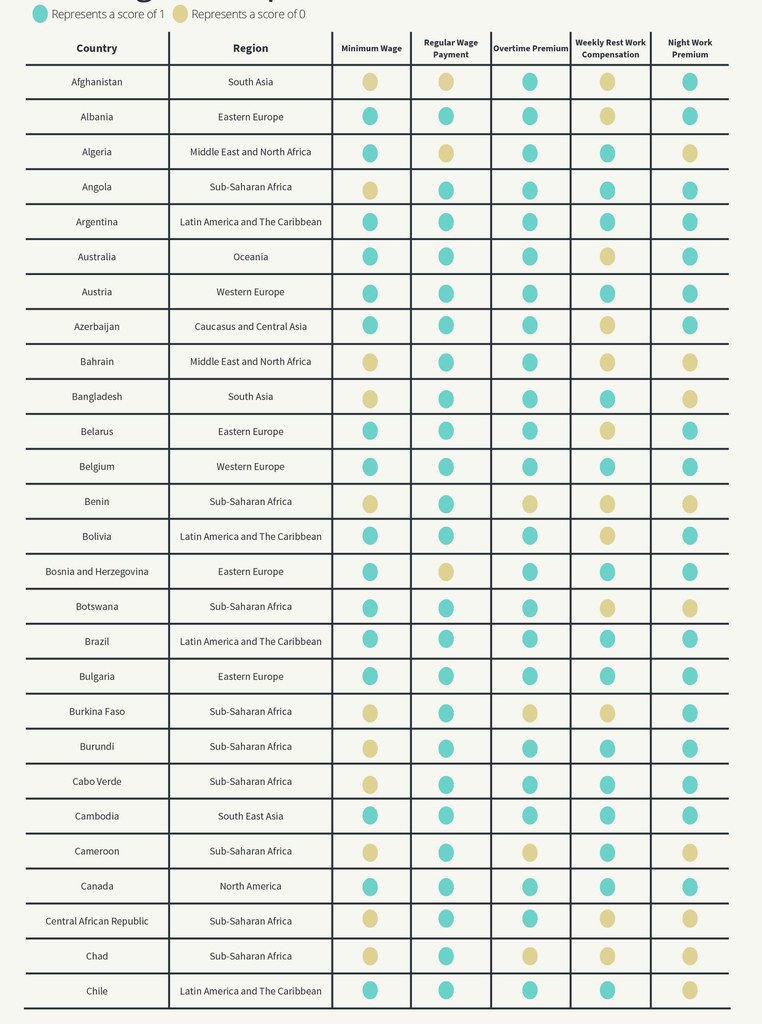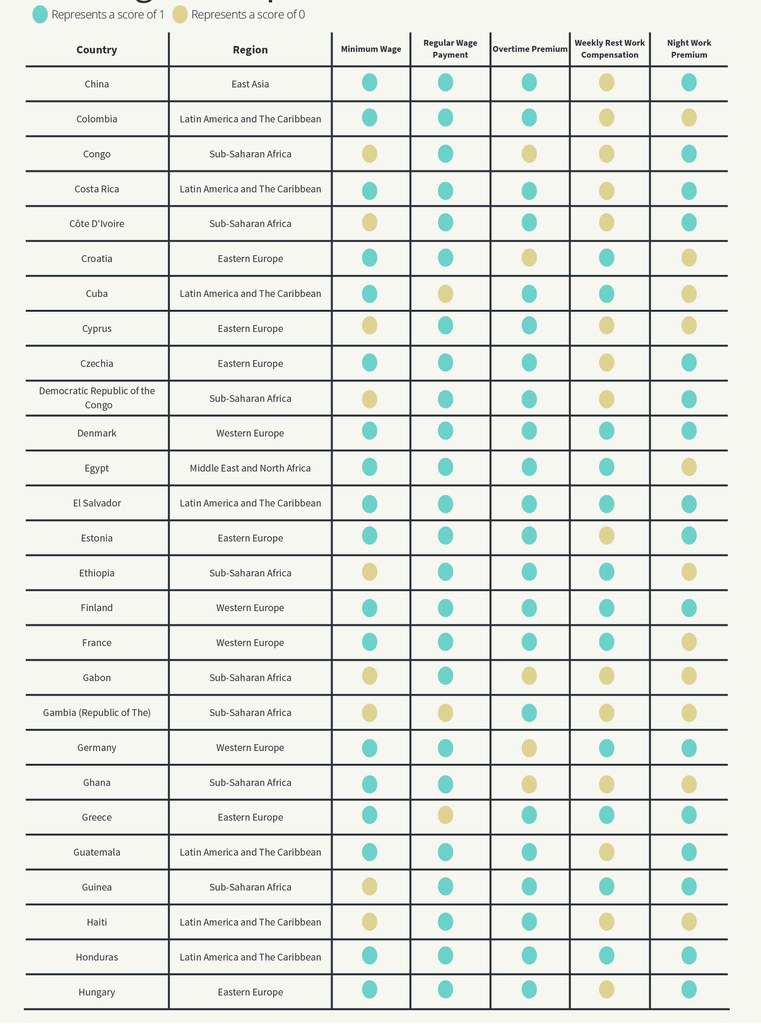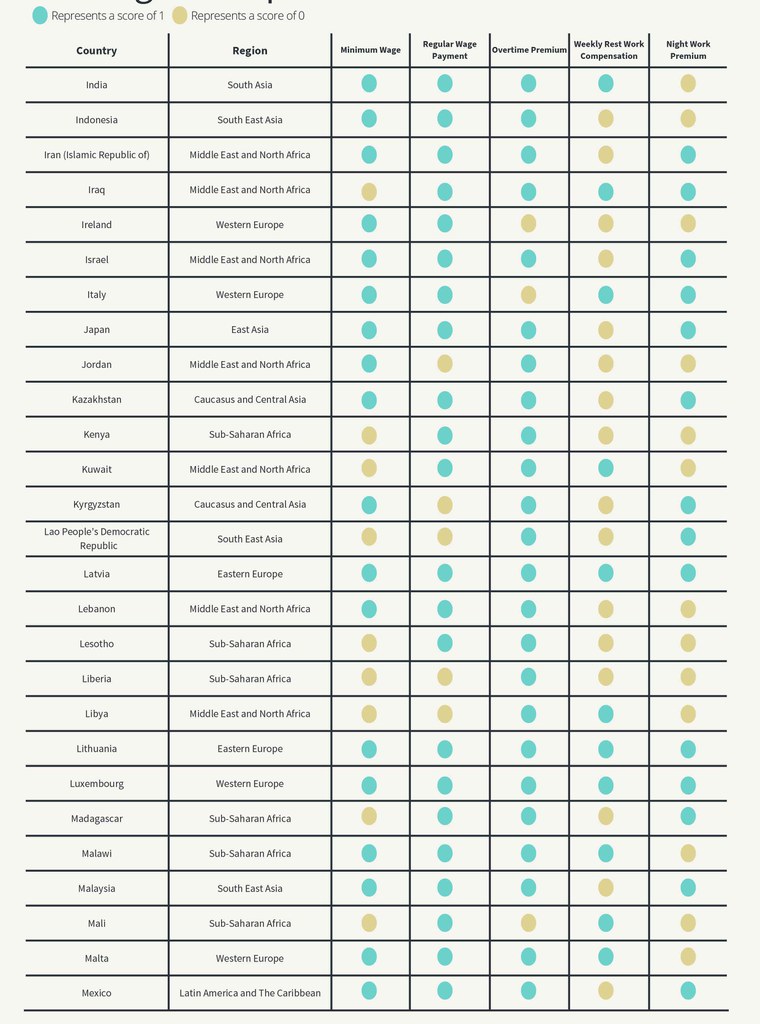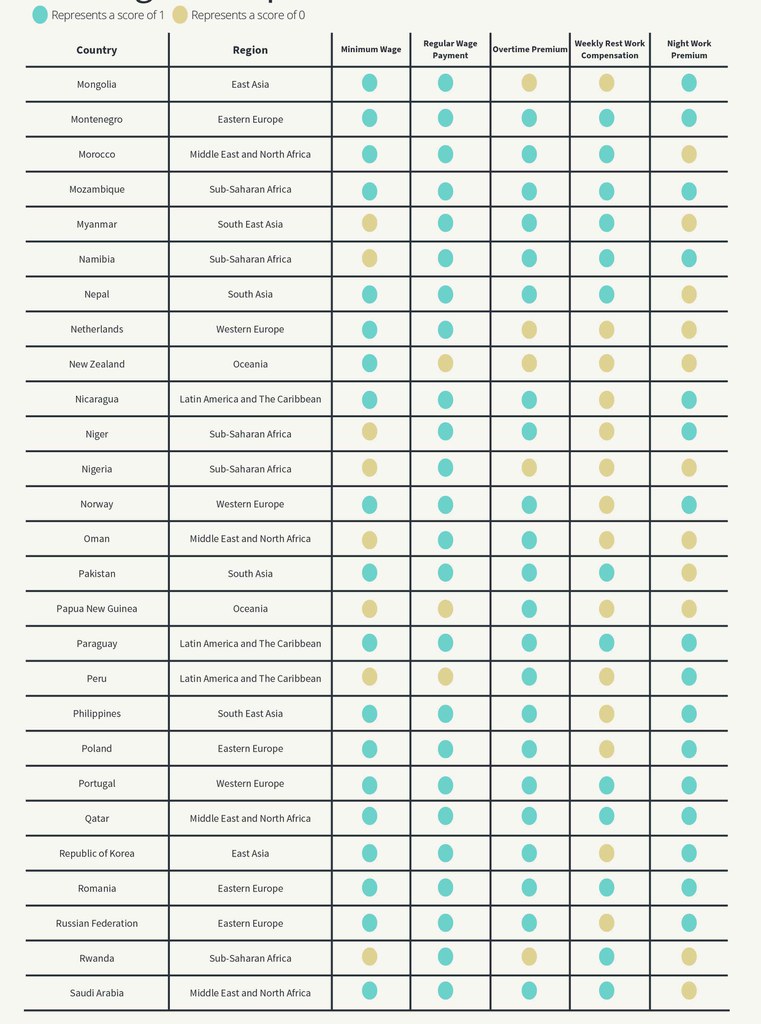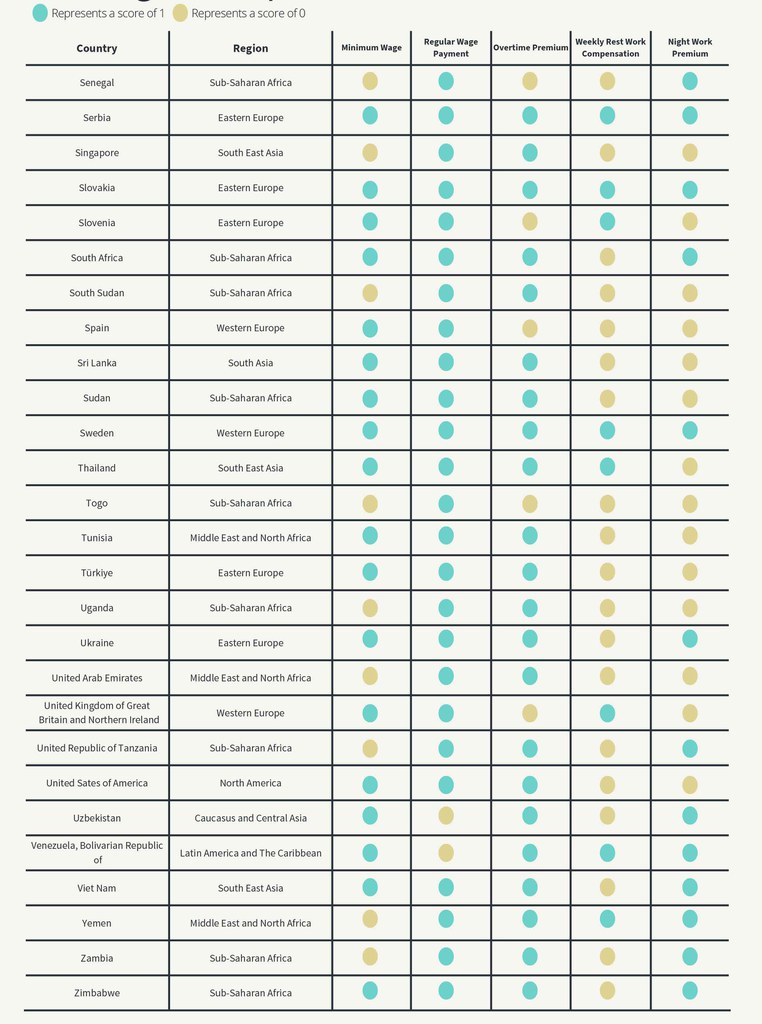Fair Wages
The Fair Wages indicator measures whether the law stipulates minimum wages or whether the wages are determined through collective bargaining. It also measures whether wages are paid in a regular and timely manner. Additionally, it evaluates 135 jurisdictions on their compliance to International Regulatory Standards on overtime and night work premium alongside the provision of a compensatory rest day for those working on a weekly rest day.
1.1 Minimum Wage
Does the law prescribe a minimum wage rate in the country?
International Regulatory Standard
Article 23 (3) of the Universal Declaration of Human Rights and Article 3 of the Minimum Wage Fixing Convention 1970 (No. 131), and Article 7 of the International Covenant on Economic, Social and Cultural Rights (Fair Wage clauses) require that all workers have the right to just and favourable remuneration so that workers are ensured fair wages and decent living. While determining the minimum wages, the needs of workers and their families alongside economic factors must be considered.
Methodology
Whether labour legislation sets the minimum wage:
1: Labour legislation, negotiation between parties or bargaining at the sectoral or national level sets the minimum wage. The minimum wage must have been updated at least once during the past two years (with reference to January 2020).
0: No provision in legislation on minimum wage or in the absence of statutory minimum wage, there is no sectoral bargaining. The minimum wage has not been updated in the past two years.
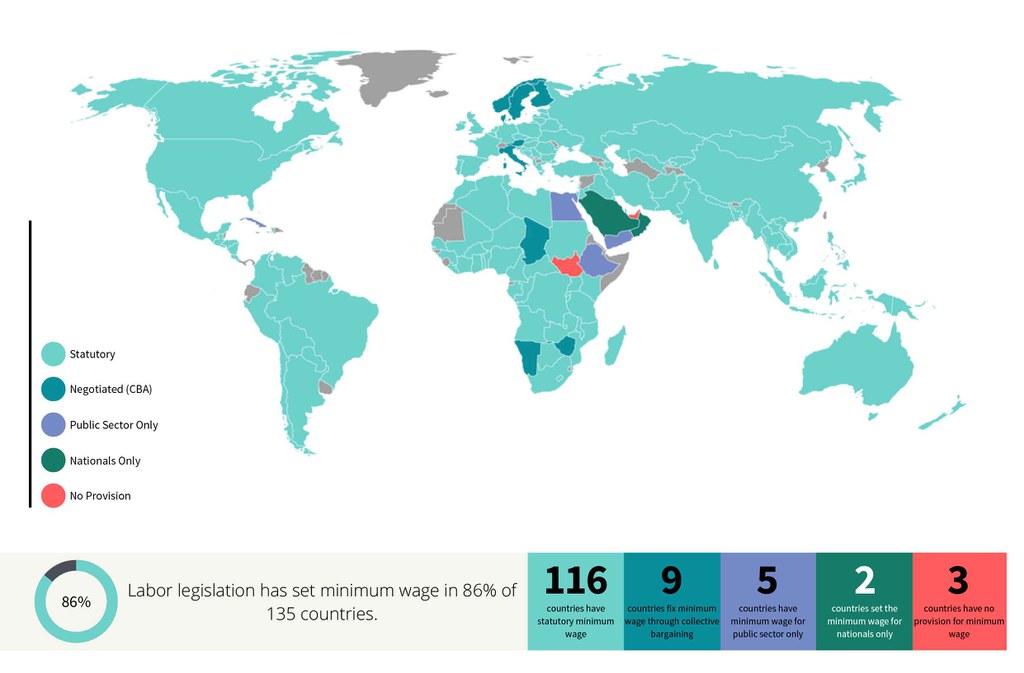
1.2 Regular Wage
Does the law require regular and timely payment of wages?
International Regulatory Standard
Article 12 (1) in Protection of Wages Convention 1949 (No. 95) and Article 11 (6) of Social Policy (Basic Aims and Standards) Convention 1962 (No. 117) state that wages should be paid regularly or at regular intervals (to reduce the likelihood of a worker becoming indebted) which need to be fixed in national laws or regulations or by collective agreements, except where other suitable arrangements are provided which ensure wages payment at regular intervals. The legislation must set a time limit within which wages must be paid after the completion of a wage period.
Methodology
Whether labour legislation requires regular and timely payment of wages:
1: Labour legislation requires employers to ensure regular and timely payment of wages. Wage payment periods can be set at the hourly, daily, weekly, fortnightly or monthly levels.
0: The labour legislation does not require employers to ensure regular and timely payment of wages on completion of a wage period.
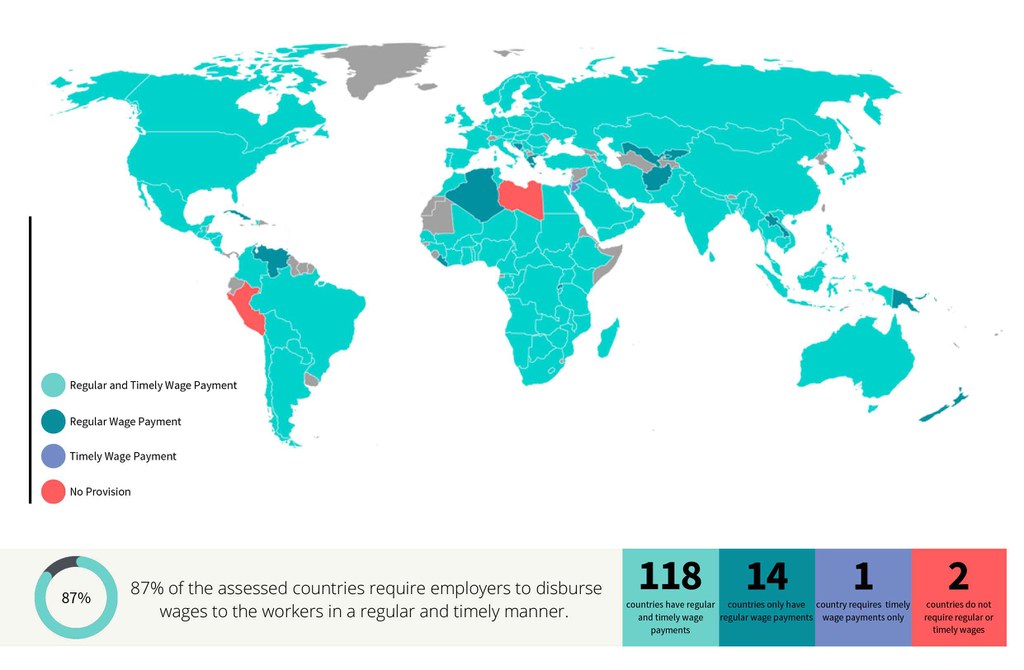
1.3 Overtime Premium
Does the law require overtime compensation to be at least 125% of the regular hourly rate?
International Regulatory Standard
Article 6 of Hours of Work (Industry) Convention 1919 (No. 1) and Article 7 of the Hours of Work (Commerce and Offices) Convention 1930 (No. 30) establishes that workplaces which necessarily have to carry out work after general working hours due to certain reasons such as force majeure, should develop regulations (by public authority and after consultation with employers’ and workers’ organisations where present) which fix the limit of additional hours in each instance and the rate of pay for overtime not less than one and one-quarter times the regular rate.
Methodology
Whether overtime compensation is at least 125% of the regular rate:
1: Monetary compensation for overtime is 125% or more of the regular hourly rate.
0: Overtime compensation is less than 125% of the regular hourly rate.
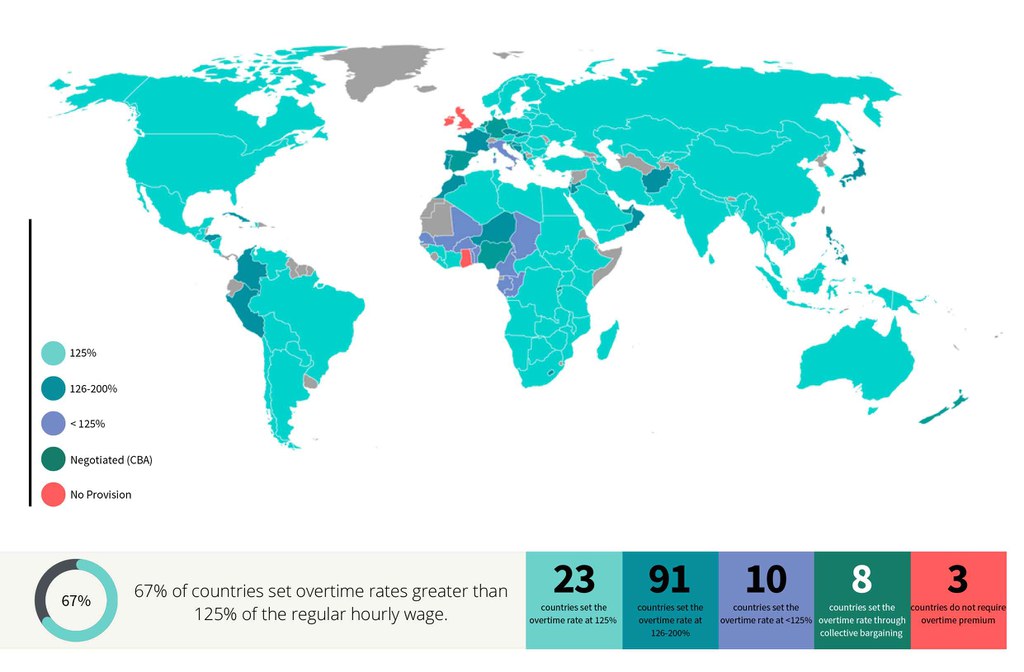
1.4 Weekly Rest Work Compensation
Does the law require additional compensation for working on a weekly rest day?
International Regulatory Standard
Both Article 5 of the Weekly Rest (Industry) Convention, 1921 (No. 14) and Article 8(3) of Weekly Rest (Commerce and Offices) Convention, 1957 (No. 106) state that provision for compensatory rest periods should be granted, with certain temporary exceptions, except in cases where agreements or customs already provide for such periods. Article 8(3) also refers to the provision of a compensatory period of rest of a total duration at least equivalent to a period of twenty-four hours.
Methodology
Whether there is additional compensation for working on a weekly rest day:
1: The legislation requires the provision of a compensatory rest day, or workers are given both the substitute day-off and premium payment.
0: Working on a weekly rest day is compensated with only a premium payment, or employers have the option to provide either a premium payment or a substitute day-off.
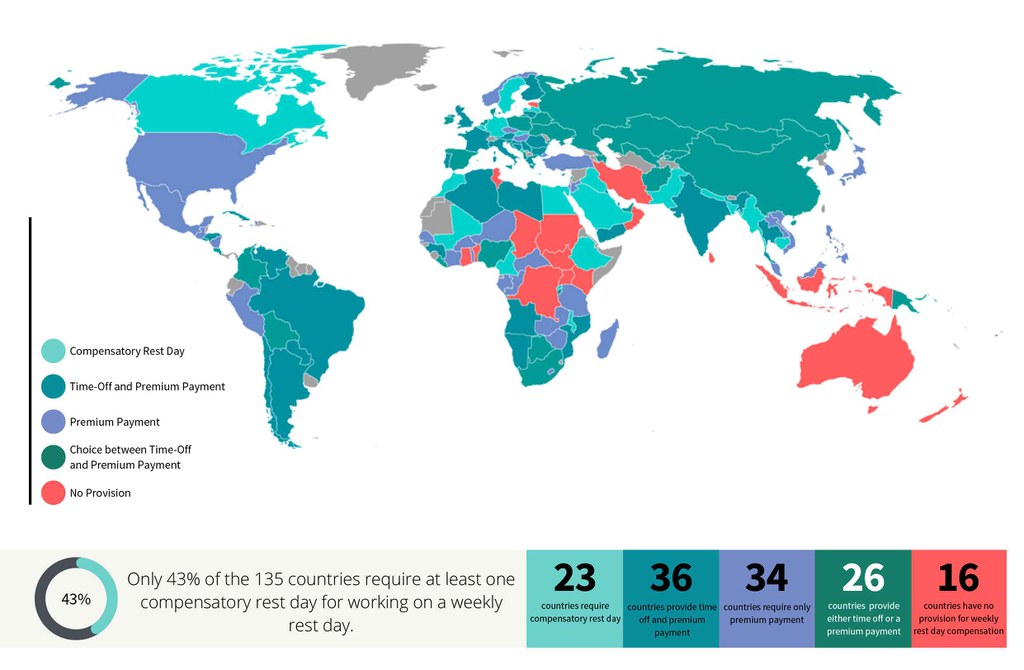
1.5 Night Work Premium
Does the law require additional compensation for night work?
International Regulatory Standard
Night Work Convention, 1990 (No. 171) states in Article 8 that compensation for night workers in the form of working time, pay, or similar benefits shall recognise the nature of night work.
Methodology
Whether there is additional compensation for work during night hours:
1: Monetary compensation is awarded for working night hours or if general working hours for night workers are reduced through shorter shifts or an additional day off.
0: Night work does not lead to a premium payment or a reduction in working hours.
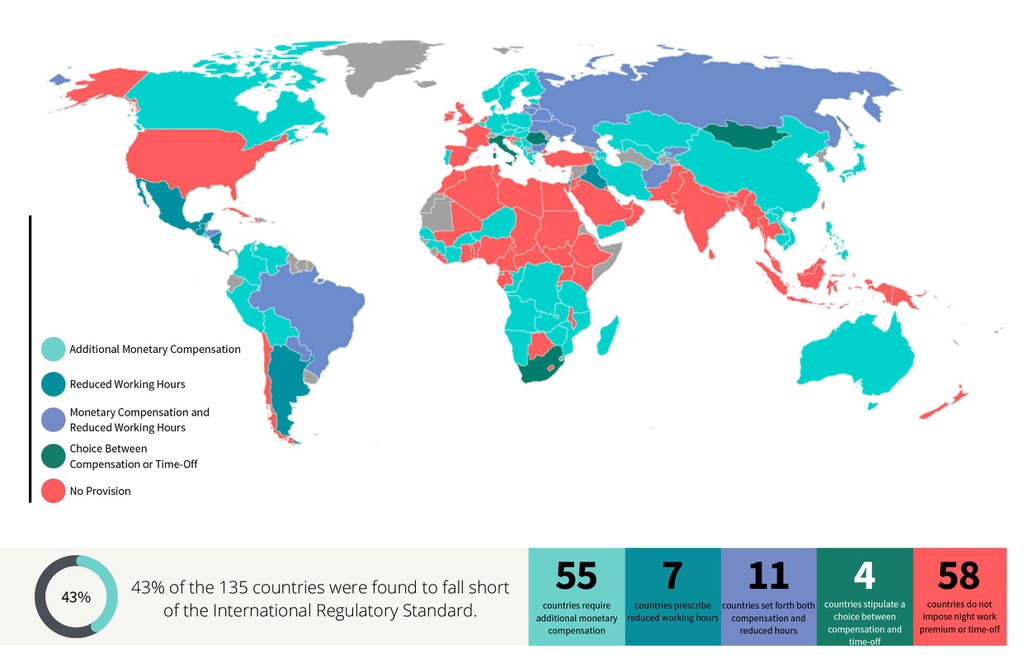
Fair Wages - Snapshot
